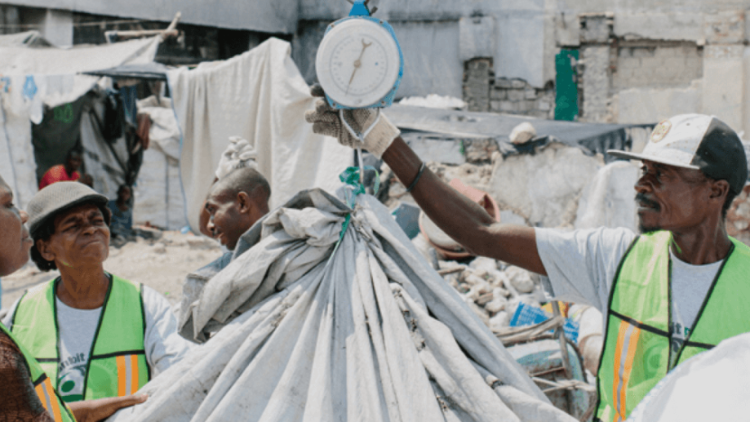
The Plastic Bank: reducing plastic waste by fighting poverty
By Vatican News
Nearly 9bn tons of plastic has been produced since it first went on sale as a mass-manufactured product in the early 1950s – and most of it is still around with some 8 million tons of plastic ending up in the planet’s oceans every year.
There are fears that by 2050 there could be more plastic in the oceans by weight than fish.
What’s more, 90% of that plastic waste is channeled into the ocean from 10 river systems running through Asia and Africa highlighting the fact that most plastic ocean waste is dispersed by the world’s poorer countries, and that the world’s poorest people are first in line paying the highest price for plastic pollution.
Laudato Sì
As Pope Francis says in his encyclical “Laudato Sì. On Care for Our Common Home,” we all need to acknowledge and take action on “our duty to care for the oceans as part of an integrated vision of human development”.
He points out that the oceans unite us and summon us to work together as “everything is interconnected” and oceans represent a crucial resource in the fight against poverty and climate change, both of which are intrinsically linked.
The Plastic Bank
Partnering with an increasing number of multi-national and local brands, The Plastic Bank is a startup that aims to stop ocean-bound plastic and at the same time fight poverty by making plastic too valuable to discard.
It works according to a New Plastics Economy, which brings together business, government and other actors to rethink and redesign the future of plastic by reusing it wherever possible and ensuring it is recycled properly so that it stays within the plastic value chain – a concept known as the circular economy.
Taking collective action
So, in partnership with the Plastic Bank, plastic recycling centers have sprung up mainly in poor Asian and African contexts in collaboration with a host of multi-national companies. When local waste collectors bring plastic to the centers, it is exchanged for cash, digital savings, healthcare, tuition, food, and other needs.
The win-win idea behind the project is that plastic is a major environmental pollutant, but its reuse could dramatically increase by providing people in poverty with the chance to earn money and improve the quality of their environment through recycling schemes, which, in the long term, will also help us better care for our common home.
David Katz, founder and CEO of the Plastic Bank was recently at the Vatican's Teutonic College to present the initiative.
Thank you for reading our article. You can keep up-to-date by subscribing to our daily newsletter. Just click here










